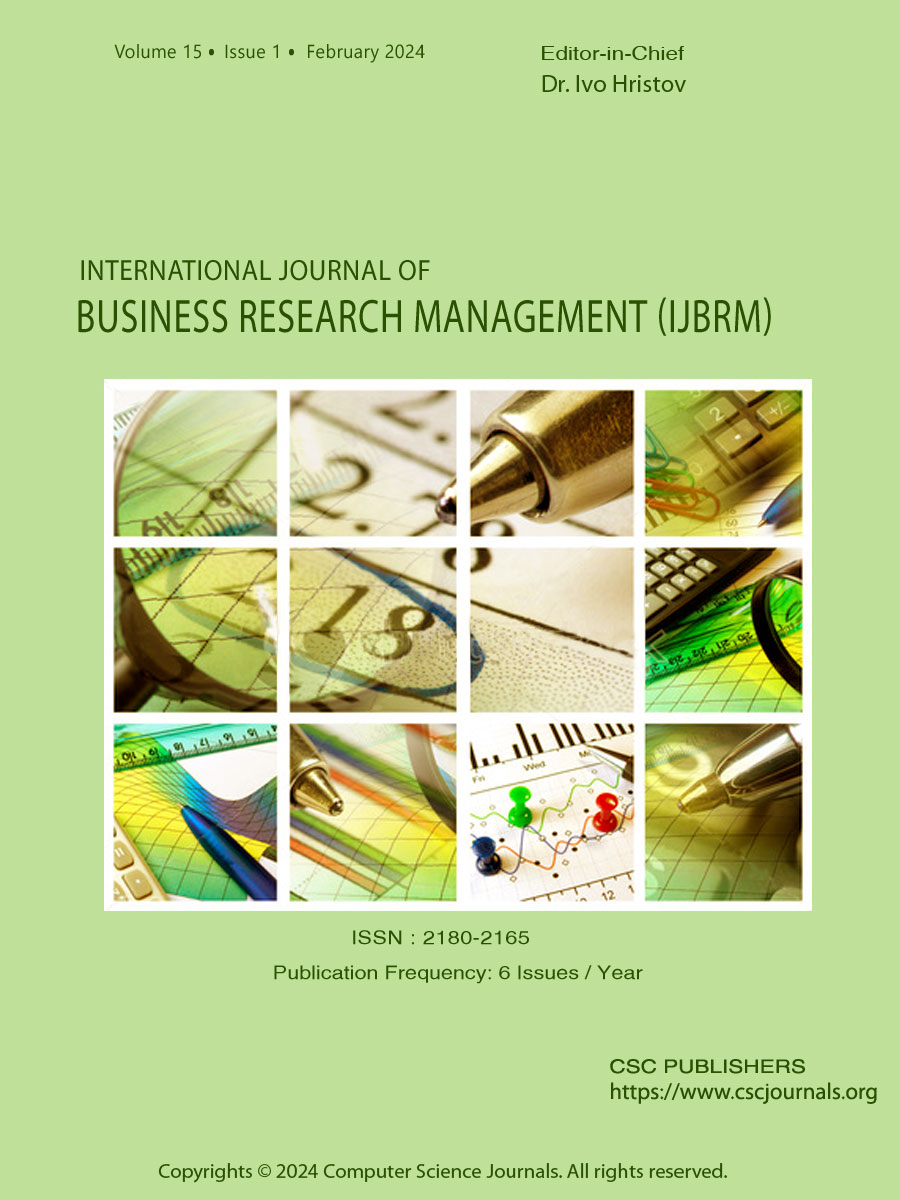Home > CSC-OpenAccess Library > Computer Science (General) > International Journal of Business Research Management (IJBRM)

International Journal of Business Research Management (IJBRM)
An International peer-review journal operated under CSC-OpenAccess Policy.
ISSN - 2180-2165
Published - Bi-Monthly | Established - 2010 | Year of Publication - 2024
|
|||||

| HOME | About IJBRM | Editorial Board | Call For Papers/Editors | Instructions for Authors | Citation Report | Issues Archive | Subscribe IJBRM | |||||||||||||||
|
IJBRM SPECIAL ISSUE
|
